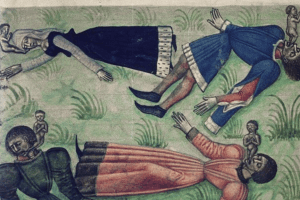Animals are immortal
because they do not know when they die or exercise
memory to its fullest.
Juan Nuño
To Leonardo González-Alcalá
1
Memory may itself be a literary genre. After all, she is the mother of the muses, begotten by the great stallion. Her board of instructions may consist of damaging or resurrecting whomever the memory is happening to, thus transforming the exercise into a subtle, trained clairvoyance. Because to guess backward also holds the anguish of who should confront, or not, the realization of the prophecy. Remembering needs to narrate the memory, to rebuild it even with some licenses, and, as etymologically recorder (remembering) is «to go through the heart again», it transmits a prophecy that insists on the immanence of the journey: moving in time, turning the landscape into discourse: You will speak of the world, that is your wonderful and miserable destiny.
2
Orhan Pamuk (1952) appropriated that instruction board—like any novelist who is important in somebody’s life. Like the dervish, who revolves to ascend and infinitely describes a spiritual circle, time details a fateful life cycle: locked in its perfection, its trained and infallible prophecy, the time that returns promises a trick for the life that is recounted. It is the Oedipal time of omnipresent Greece, with its painful symmetry of cause and effect. His novels say nothing new, its trick and its literary power lies in ripping the scab off the old sore, to look at the painful trade of an insomniac and dissatisfied Narcissus.
3
In The Museum of Innocence (2009) a man loves but gives up at the first orgasm: he dies happy, but he does not accept to wipe the slate clean: he fulfills his destiny: he is a well-off Turkish man, she is poor. No one wants to bother the gods of arranged life, nor the tribes of the desert who shed their blood to write the history of the Empire. The circle is actually a bubble; its singularity of time and space can only engulf us. The equalizing singularity is love.
4
What is ahistorical is the need to hope, says John Berger. Love in Pamuk’s novels usually lasts for the rest of someone’s life, and it is well known that on few things is as much hope deposited as in love. Thus, a person who decides to read a five-hundred-page novel may need a conservative act, a commitment of memory upon the abyss of time: in A Strange Sensation (2015), Pamuk consummates—with the excuse of a biography of the common Istambul man—a transcendent link that seems to recover the old promises of love, loyalty, and tolerance among men. At a time when the norm is to make up the norms, where eternal love—or at least commitment—lasts for as long as it takes boredom to reach a WhatsApp romance, reading a five-hundred-page novel is perhaps the most genuine and enduring approach to being with another human being: novels are read because, despite the alienated exhibitionism of our time, we want to create bonds with others.
5
In My Name is Red (2003), a woman tries to appropriate her body and its forecasts. She must circumvent the law of God and the most vulgar conatus of domination of those around her. Of the man she desires, she keeps but a vague memory, which is at the same time the memory of herself when he was able to hold a desire. Pamuk’s women remember towards the future: things cannot continue like this. The law of God and of men cannot subdue the fervor of an erect nipple, of a mouth that knows how to nurse angels and monsters.
6
Pamuk speaks of Istanbul even when he sneezes, and in his hurried autobiography he insists on the city as a gloated and touchy penitent. But Istanbul. City and Memories (2006) is also a log of readings, masturbations, protuberances, blood wars and tender failures, miscalculations, and intensity that shape the power of the future: in memory lies personality, explains Borges, and the opposite translates as idiocy. Pamuk needs the oracle of his city in order to not fade into the limits of his human condition. It takes many more lives, the recollection of other personal times, to invent eternity. Consensus is needed to circumvent the cruel mathematics of absent gods and an excess of abyss on the horizon.
7
The novel is the game of investing love and divination into the limits of something truly unknown. The novel is the schooling of memory.
* About the author:
Enza García Arreaza (Puerto la Cruz, 1987) is an editor at Backroom Caracas, writer, and poet. She obtained the VII Cuento Contigo Literary Prize bestowed by Casa de América (Madrid, 2004) with «La parte que le tocó a Caleb». In 2007, she won the prize for unpublished authors hosted by Monte Ávila Editores with the book of short stories Cállate poco a poco (Monte Ávila Editores, 2008). In 2009, she received the III National University Literature Prize, hosted by Universidad Simón Bolívar, with the book El bosque de los abedules (Equinoccio, 2010). Her writing appears in the anthologies Cuento Contigo 2 (Madrid, Siruela, 2006), and Zgodbe iz Venezuele (Eslovenia, Sodobnost International, 2009); in the collections De la urbe para el orbe. Nueva narrativa urbana (Caracas, Alfadil, 2006); Joven Narrativa Venezolana III. Premio de Cuento Policlínica Metropolitana para Jóvenes Autores 2009-2010 (Caracas, Equinoccio, 2011); De qué va el cuento. Antología del relato venezolano 2000-2012 (Caracas, Alfaguara, 2013); Tiempos de nostalgia / Tiempos de saudade (Caracas, Ediciones del Instituto Cultural Brasil–Venezuela, 2013), and in Voces -30. Nueva narrativa latinoamericana (Chile, Ebookspatagonia, 2014). The book of short stories Plegarias para un zorro was published in 2012 by bid & co. editor. El animal intacto, her first poetry book, was published in 2015 by Ediciones Isla de libros.

















